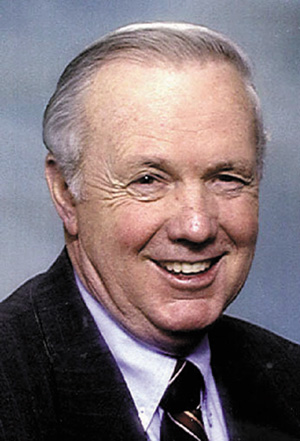No. 414 - ARE "MEAL DEALS" REALLY A BARGAIN?
No. 414
Jim Davidson - NEWSPAPER COLUMN
ARE MEAL DEALS REALLY A BARGAIN?
Did you know that 64% of all Americans are now overweight or obese? This is true, according to a recent report in the Newsletter of the American Institute for Cancer Research. A part of the reason may be "value marketing" by a majority of the "fast food" restaurant chains in our country. When we have a courteous, polite restaurant employee say, "For just 58 cents more, I can super size that for you" it sounds like a good deal, but is it really? After I share some facts and statistics with you, you be the judge, but let me preface my comments by attempting to set the record straight. As a small, independent businessman, I donât have a problem with any legitimate business earning a profit, thatâs free enterprise at its best, but if they do so at the expense of the good health of millions of Americans, thatâs a completely different story.
As part of a study conducted by health organizations nationwide, The American Institute for Cancer Research attempted to quantify just how much damage "value marketing" is doing to the health of Americans who regularly purchase meal deals. Here is an actual case study that may be of interest to you. "Just before lunch, an employee of AICR went into a fast food restaurant in Washington, D.C., and ordered a cheeseburger. "For just $1.40 more you can get a meal package÷cheeseburger, fries and a Coke," the server said. "Sounds too good to be true," the employee replied. The server responded, "As a matter of fact, for just 58 cents more, you can super size it."
So this AICR employee, a small lady, walked out the door with a bag containing a 4-ounce cheeseburger, a large order of French fried potatoes and a large Coke. It was a bargain. The trouble was, her lunch now contained 1,380 calories or about 700 more calories than a woman her size requires at lunch. Thatâs how "value marketing" works. Restaurants and food retailers offer the American consumer a lot more food for just a little more money. Since food, as opposed to labor, rent or utilities, is their smallest cost, they make money on such deals. Customers are happy, too. They pay a little less per unit and get an enormous portion of food.
Everything would be hunky dory, if they didnât eat all those extra calories. However, seventy percent of respondents to a recent AICR survey, said they eat everything they are served in a restaurant, all or most of the time. So a decade or two of "value marketing" may explain why 64% of all Americans are now overweight or obese, the answer to the question that I asked you in the beginning. For this employee who made the purchase, the good news is that she didnât eat that 1,380 calorie lunch. She brought it back to the AICR office, along with her sales slip.
Here are some more practical, true examples that you may want to consider the next time you make a food purchase. At Cinnabon, when one Minibon (300 calories) was ordered, the clerk said, "Itâs only 48 cents more for a classic Cinnabon (670 calories)." So researchers paid 24 percent more for 123 percent more calories. At 7-Eleven, researchers asked for a "Gulp" of Coke (150 calories) and left the store with a "Double Gulp" (600 calories) for only 37 cents more. Thatâs a 42 percent increase in price for 400 percent more calories. At movie theaters, researchers asked for medium popcorn without butter (900 calories) and were told you can get a large (1160 calories) for only 60 cents more. Thatâs 23 percent more money for 260 more calories.
Researchers found a whopping big "deal" at McDonaldâs. They only paid 8 cents less to buy the large value meal (Quarter Pounder with cheese, large fries and large Coke at 1,380 calories) than to buy the Quarter Pounder, small fries and small Coke (890 calories.) That is, they spent 8 cents less to purchase 490 calories more. The list goes on, but the pattern is the same: customers are manipulated into paying a little bit more for many more calories than they can afford to eat.
If what I have been saying applies to you or your children or grandchildren and you want to fight back, here is how to do it. When itâs time to order, say "small," or say "half" and share. When ordering, always insist on the smallest size. Just say, "The smallest size, thatâs the one I want." With cancer still being one of the leading causes of death in our country, you might be interested in knowing that research links being overweight with increased risk of cancer. Overweight and inactivity account for one quarter to one third of all breast, colon, endometrial, kidney and esophageal cancers. If you are concerned about your weight, you might want to think about where you are getting those extra calories. Are "meal deals" really a bargain? Just think about it for your healthâs sake. (Jim Davidson is a motivational speaker and syndicated columnist. You may contact him at 2 Bentley Drive, Conway, AR 72034.)
